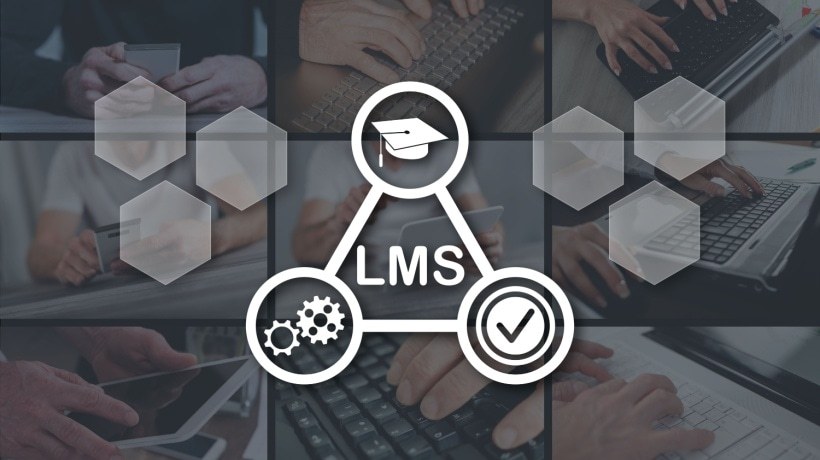White Label LMS For Modern eLearning
Organizations today need online training platforms that reflect their brand identity while delivering exceptional learning experiences. White label LMS platforms have become the preferred solution for businesses seeking professional learning management without the complexity and cost of custom development. According to McKinsey's latest AI in the workplace report released in January 2025, 92% of companies plan to increase their AI investments over the next three years, highlighting the critical need for effective training platforms.
In this article, you'll find...
- What Is A White Label LMS?
- Why White Label LMS Solutions Matter In eLearning
- Key Benefits Of A White Label LMS
- Essential Features Every White Label LMS Should Have
- Evaluating White Label LMS Solutions
- How To Choose The Best White Label LMS Provider
What Is A White Label LMS?
A white label LMS is online learning software that can be fully customized and rebranded to reflect your organization's visual identity and domain structure. Unlike traditional systems that display the vendor's branding, a white label LMS allows you to remove all traces of the original provider and present the platform as your own.
This creates a seamless brand experience for your learners. They interact with what appears to be your organization's proprietary platform, which enhances brand consistency, trust, and professional credibility. The software operates on a service model where the core functionality remains strong, while the design and interface are completely customizable to fit your brand.
Why White Label LMS Solutions Matter In eLearning
As organizations scale their learning programs, maintaining a consistent brand image becomes essential. Whether you're delivering employee training, partner onboarding, or online courses for clients, a white label LMS helps you:
- Strengthen your learning brand identity.
- Deliver personalized experiences across multiple audiences.
- Launch courses faster with minimal setup costs.
- Maintain control over your learning environment.
According to McKinsey's 2025 report, over 90% of companies plan to expand digital learning and AI integration—making flexible, branded LMS platforms more valuable than ever.
Key Benefits Of A White Label LMS
1. Full Branding Control
Every detail of your platform—from login screens to mobile apps—can be customized. You can design the learner experience to align perfectly with your brand guidelines and learning culture.
2. Cost-Effective And Quick To Launch
Building an LMS from scratch is expensive and time-consuming. A white label LMS gives you enterprise-level functionality at a fraction of the cost, helping you launch a branded solution in weeks, not months.
3. Scalable And Flexible
Whether you manage a small learning team or an enterprise training program, white label LMS platforms grow with you. You can easily add new learners, teams, or even clients without needing extra development work.
4. Better Learner Engagement
Consistent branding creates familiarity and trust. Learners are more likely to engage and complete courses when the platform feels like part of your organization rather than a third-party tool.
Essential Features Every White Label LMS Should Have
Advanced Customization Capabilities
Subdomain configurations can help maintain brand continuity while providing dedicated online learning spaces with color and design control across all User Interface elements. The portal access should feel like a natural extension of your main website.
User Management And Analytics
Sophisticated user management capabilities ensure your white label LMS can accommodate complex organizational structures with role-based access controls and easy account setup. Comprehensive reporting and learning analytics provide data insights necessary for training program optimization, including learner engagement metrics and progress tracking. These built-in analytics help your team make data-driven decisions.
Mobile-Responsive Design
Mobile learning design ensures consistent learning experiences across all devices, including phones and tablets. Native mobile app capabilities extend branding to dedicated learning applications with mobile-friendly interface design. Learners can download content for offline access, making training accessible anywhere.
Content Creation And Collaboration
Look for platforms with built-in video-based learning support, interactive content creation tools, and social learning features. The ability to import existing training materials in multiple formats saves significant time during implementation. Platforms that support webinars and live sessions provide additional engagement options for employee training programs.
Evaluating White Label LMS Solutions
When evaluating white label Learning Management Systems, organizations should focus on critical dimensions that determine long-term success. The best white label LMS solutions offer comprehensive service that goes beyond basic features.
Customization Depth And Scalability
The most effective white label LMS platforms go beyond superficial branding to offer deep customization of user workflows, learning paths, and assessment structures. Look for solutions that support custom CSS implementation, API-first architecture for extensive integrations, and the ability to modify notification systems.
Multiple portal configurations become essential for organizations managing separate branded environments for different divisions, clients, or partner networks. The private label approach should allow you to add your unique branding elements throughout.
Your platform must accommodate organizational growth without compromising performance. Evaluate the vendor's infrastructure for concurrent user capacity and uptime guarantees at scale. Cloud-based architectures typically offer superior scalability with automatic updates and security patches. The platform should be designed to handle growth from small teams to enterprise deployments.
Integration And Support Quality
A robust white label LMS integrates seamlessly with your existing technology stack, including HRIS systems, CRM platforms, and single sign-on solutions. API availability and webhook support enable custom development while maintaining upgrade compatibility.
The vendor's technical support quality is equally important. This includes response time guarantees, multichannel support availability (including phone and email), and dedicated customer success management. Whether you're a creator, instructor, or administrator, reliable service is essential. Ask about the level of technical expertise available and whether you'll have access to dedicated support resources.
Evaluating White Label Features In Practice
Understanding how white label capabilities work in real implementations helps clarify what to prioritize during selection. Take branding control as an example: some platforms offer surface-level customization (logo swaps, color changes), while others provide complete vendor removal with custom domains and branded mobile apps.
Multi-tenant architecture is another key differentiator. Can you create separate branded portals for different clients while managing everything from one admin dashboard? This matters for agencies, training companies, or enterprises with multiple divisions. Payment infrastructure also varies widely: built-in processing, multiple currencies, and team management capabilities indicate a platform designed for commercial use, not just internal training.
Pricing structures affect which features you can actually access. Entry-level plans often restrict advanced white labeling options, so understanding tier limitations prevents budget surprises as you scale. Use these criteria of branding depth, architecture flexibility, monetization tools, and pricing transparency to evaluate any platform against your specific requirements.
How To Choose The Best White Label LMS Provider
Selecting the optimal white label LMS vendor requires systematic evaluation of your organization's specific requirements against platform capabilities and long-term strategic alignment.
Key Evaluation Criteria
Consider these essential factors when evaluating providers:
- Technical capabilities
Assess security compliance, data protection capabilities, and scalability provisions - Support quality
Evaluate response time guarantees, multichannel availability, and implementation success history - Pricing transparency
Compare total cost of ownership including implementation costs, training expenses, and customization investments - User Experience
Test learner interface usability, admin efficiency, and instructor tools effectiveness - Integration options
Ensure API availability and the ability to add integrations easily as your needs evolve
The platform should feel intuitive for both learners and administrators. Learning management features should align with your organization's training methodology with easy navigation and friendly interface design. Performance requirements include uptime guarantees, response time specifications, and concurrent user capacity that support reliable learning content delivery. Ensure the platform can handle multiple simultaneous users without performance degradation.
Understanding White Label LMS Pricing
Modern white label LMS platforms come with flexible pricing models to fit different business and training needs. Most vendors offer monthly or annual plans, giving organizations the choice between budget flexibility or long-term savings.
- Monthly plans let you test the platform without a big up-front cost.
- Annual plans often include 15–30% discounts and additional support options.
- Many providers also offer free trials or demos to help you evaluate features before investing.
When comparing LMS pricing, consider more than just subscription costs. Factor in ROI from improved productivity, better learner engagement, and reduced training expenses. Also include extra costs like data storage, integrations, and customization as your platform scales. For small organizations, focus on essential features and ease of setup. Larger enterprises may need advanced customization, analytics, and dedicated support to manage complex learning environments.
Implementation And Scaling Tips
Successful LMS implementation starts with content migration and user onboarding. Make sure your team receives the right training and support for smooth adoption. Track success through learner engagement, completion rates, and satisfaction levels using built-in LMS analytics. As your learning programs grow, choose a platform that can easily scale—adding new clients, partners, or teams without major reconfiguration. A well-planned white label LMS not only saves costs but also grows with your organization, supporting long-term eLearning success.
Conclusion
A white label LMS gives you the freedom to own your learning experience—visually, strategically, and operationally. Whether you're an L&D professional, corporate trainer, or course creator, it's a smart way to deliver engaging, branded learning without building a platform from scratch. By combining flexibility, scalability, and affordability, white label Learning Management Systems empower organizations to stand out in the competitive eLearning industry.









